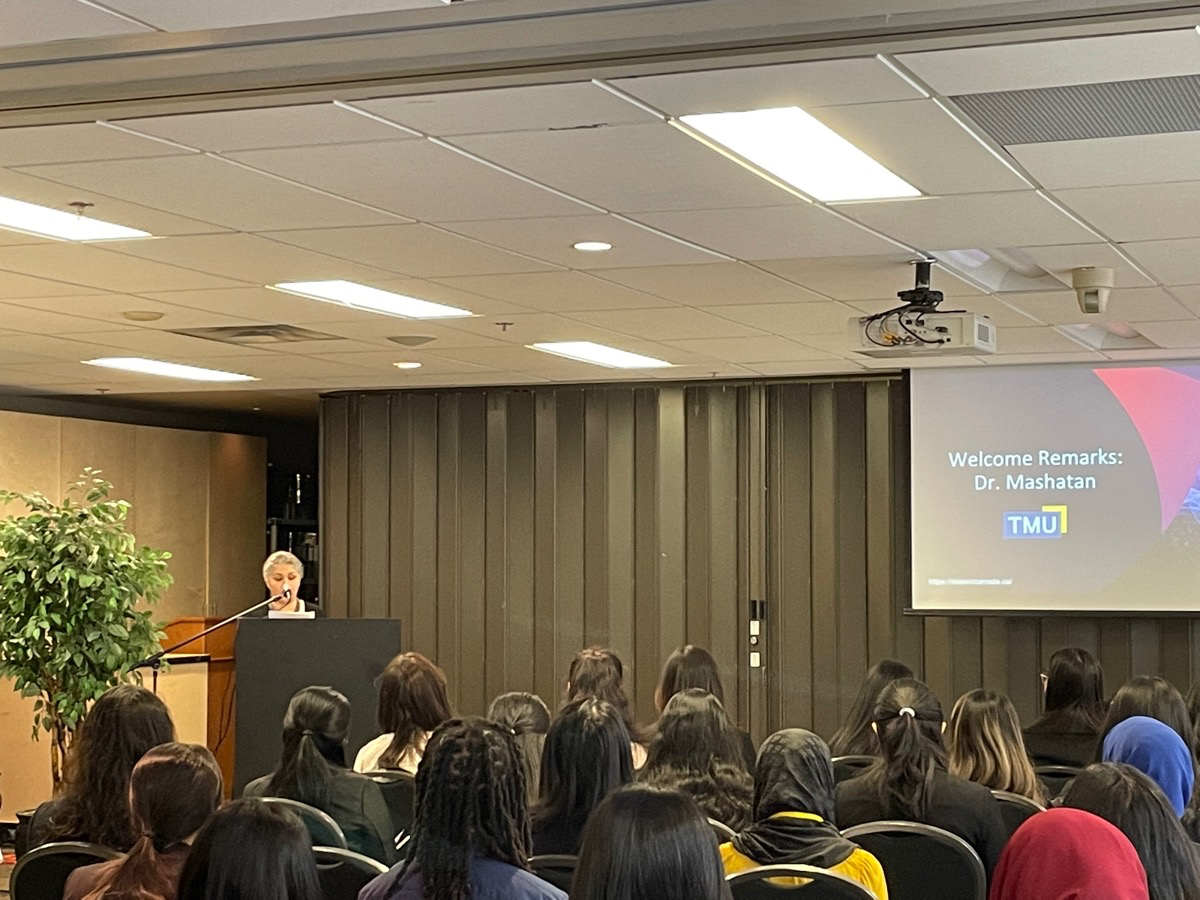Female cybersecurity students attend program designed to line up jobs
Cybersecurity is becoming more and more necessary as information exists in vulnerable spaces online. The industry is looking to fill positions that have been left available. Through a pilot program with Information Communications Technology Council of Canada (ICTC) and the Cybersecurity Research Lab at TRSM, students have been given the opportunity to organize a co-op and/or start a career in cybersecurity as soon as they graduate. Close to 40 female students experienced this on Tuesday when they attended a cybersecurity event designed to connect the group with potential future employers with the goal of securing cybersecurity co-op placements for this upcoming summer and the ultimate goal of a full-time employment.
The Information Communications Technology Council of Canada (ICTC) and Microsoft Cybersecurity Training Pilot is a pilot project, providing training, certification and networking for female students looking to pursue cybersecurity. The program is funded by the Government of Canada’s Work Integrated Learning Program. Students had to submit an application to become part of the program, and those who were accepted will receive free training and certification from Microsoft. Dr. Atefeh Mashatan, along with the Information Communications Technology Council of Canada (ICTC), designed the program to provide women a space to connect with others in the field and hear from industry professionals, but also to show students the multiple pathways available to them inside of a career in cybersecurity.
“An event like this provides our business students the opportunity to network with business professionals working in the cybersecurity sector, who are looking to hire candidates with a mix of technical and business background/education,” said Dr. Mashatan. “The employers are interested in the skills these students have because they are a unique combination of skills,” she said. “They are trained in cybersecurity from a business perspective, because that's what we teach at the business school. Cybersecurity from a business perspective, not strictly coding or purely technical know-how,”

Atty Mashatan, founder and director of the Cybersecurity Research Lab (CRL) at Toronto Metropolitan University (TMU), spoke to students at the event.
The industry is growing as a need for cybersecurity increases. According to research (external link) , “In 2020, malware and ransomware attacks increased by 358% and 435% respectively.” Dr. Mashatan explains that as organizations continue to rely on connected devices and connected networks, protected information has become more available to the wrong crowd. “This sensitive information is all very useful, very lucrative, very attractive to attackers. So there are more attacks and we need more people to protect our society, our industries overall,” she said. Not only have the number of attacks increased, but jobs are being left unfilled. Further research (external link) shows that over an eight year period, “the number of unfilled cybersecurity jobs globally grew by 350 percent — from one million positions in 2013 to 3.5 million in 2021.” Part of the work the program is doing is to fill these open positions and close the gap, further protecting the available data.
Business Technology Management student, Vivian Han, said that part of the reason she was interested in cybersecurity is because of how much information is online now in comparison to previous generations. “There's so many people looking to attack and there's many risks associated with the digital world,” Vivian said. “I think that there's a lot of problem solving involved and constantly learning more, and that's something that I personally like to do. So I think that this field would be a good match for me,” she said.

Vivian Han, a fifth year Business Technology Management student, attended the event in hopes of securing a co-op position or full-time job.
Some students are so keen on the program that they have deferred graduating so they can remain students and be eligible to participate. Zahra Adelzadeh, a fifth year Business Technology Management (BTM) student, delayed her graduation by a semester so she could be part of the program. “When I joined BTM it was less than 10 girls out of 400 students in my first year,” she said. “Dr. Mashatan shared this opportunity with us and I saw it was female specific, trying to promote these STEM roles for women. It was just amazing. Not only are we being recognized for being at a level to be able to participate in this cybersecurity program, but also seeing that the industry itself wants us in it and is ready for a change,” said Adelzadeh.
“I think [as women] we kind of restrict ourselves from looking into those fields because we might not have that kind of technical background. But these companies are willing to show us that it's not about all technical skills, [instead it’s about] our business education, our transferable skills, being ourselves and a willingness to learn. It's not just coding,” said Adelzadeh.

Zahra Adelzadeh, also a fifth year Business Technology Management student, attended the event to network with organizations and learn about a potential future in cybersecurity.
